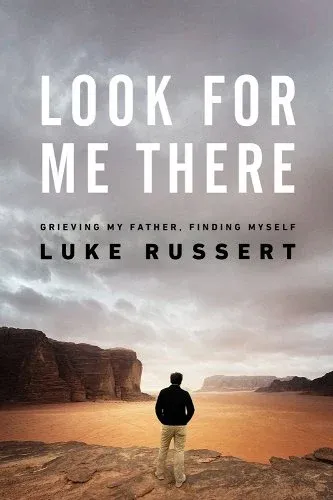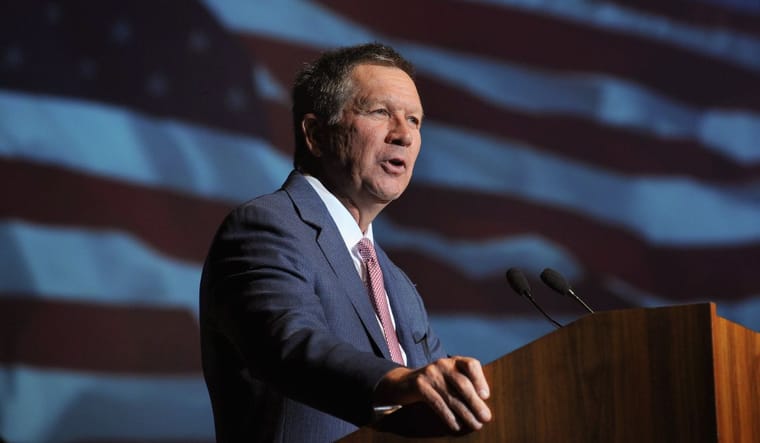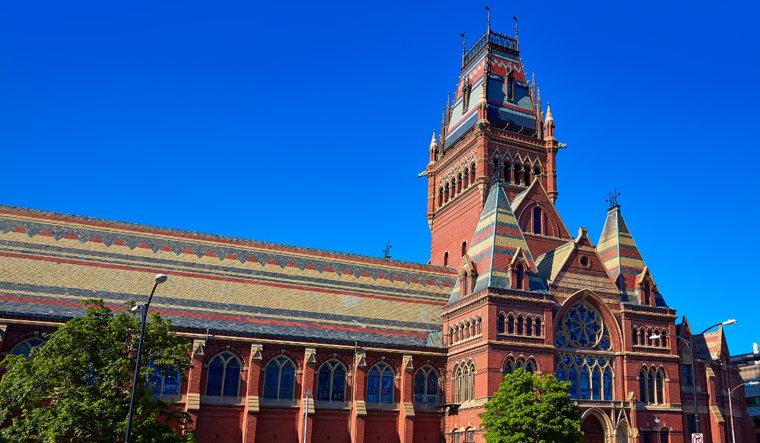Luke Russert Was 22 When His Legendary Father Died. Here’s What He Learned When He Stopped Trying to Outrun His Grief
Luke Russert sits at his desk in his home office in Washington, D.C., and points to a sign on the shelf behind him. “My dad gave this to me when I went to college,” says the 37-year-old son of legendary newsman Tim Russert. “It says, ‘It’s nice to be important, and it’s important to be nice.’ Dad lived that way.”
If you watched Tim Russert on Meet the Press, there’s a good chance you remember him as someone who lived those words. Luke says the warm-hearted, happy-go-lucky guy we all saw on TV was the same one he got at home. “For me, there were two different Tim Russert,” Luke tells The Sunday Paper. “There was the public-facing person and the one who was Dad—the one I knew from birth, who I was very close to, and who always gave me the gift of time. And honest to God, there wasn't much of a difference between the two.”
After Tim died unexpectedly of a heart attack in 2008, Luke followed in his father’s footsteps and started covering politics on TV. Yet after eight years of honing his skills covering Congress, he realized he was trying to chase his father’s legacy—but couldn’t explain why.
In his new memoir Look for Me There, Luke gets candid about how he finally grieved the loss of his dad—and how doing so helped him find himself. This week, The Sunday Paper sat down with Luke to ask him about this journey.
A CONVERSATION WITH LUKE RUSSERT
Tell us a bit about the title of your new book, Look for Me There, and the story behind it…
I realized when I was going through journals from my travels that I was searching for something. Who am I? What am I looking for? And something my dad always used to say popped into my mind: “Look for me there,” he’d tell me if we were at a concert or a baseball game in case we got separated. When I would fly home from college, my dad would always say, “Look for me there,” referring to this little coffee stand at the National Airport here in Washington. Now, the phrase is ingrained in my mind. Whenever I fly into the airport here, and I see that coffee stand, I swear I see my dad every single time. That's where the title comes from. It’s very personal. And it's very true.
You were on the fast-track toward a successful career at NBC News, but you write about feeling empty and unfulfilled. What inspired you to make a change?
I had a beautiful path ahead of me if I wanted it. I had spent eight years honing my skills covering Congress, coming into my own on television. But when I turned 30, I felt like something was missing. I had a nagging voice in my head saying, “Is this really what you want to do?”
Then I had a chance encounter conversation with House Speaker John Boehner, who called me into his office unexpectedly. I had covered him pretty aggressively, so I thought he was going to reprimand me or be angry about something I’d covered. Instead, he asked me, “What are you doing here?”
I was taken aback. I thought, What do you mean? You called me into your office! He went on to essentially say, “There’s more reality outside the Capital building. What have you done outside of here? What do you want to do?” And it rattled me. Here was someone who’d worked so hard to get to the top, and he was saying, “Before you get up here, just make sure that it's really what you want. Because it might not be as fulfilling as you think it is. Or it could be down the line, but make sure that you want to do it.”
I think of that moment as a divine intervention. Soon after, I decided to get off that hamster wheel and start to think about some of the things I’d never really faced. I felt the only way I could do that was to leave.
When you got off that hamster wheel, you traveled to more than 65 countries across six continents. How did travel give you a new perspective?
I think we need to notice when our minds are telling us that we need to reset. A lot of time, it's easy to ignore that voice in your head. There's always something to be done, whether it's getting married, taking a job, taking care of your children or parents—there's so many things that are demanding of your time. A lot of people think, “Well, that's just the way it is.”
Traveling strips away those identities. No one cares when you’re in a small village in the middle of Asia what your last name is, where you went to college, or what’s on your LinkedIn. Instead, it’s, “Who are you at this moment? And what are you made of?”
I realize I was able to travel because of an incredible position of privilege. I don’t deny that. But I met folks along the way who had nothing—who got up and left life as they knew it to reassess and decompress. And it taught me that doing this is so important—whether you hit pause for a week, six weeks, six months, a year, or three years.
I think a lot of people are afraid to take this pause. I was afraid in the beginning. It’s terrifying because you’re going off into the unknown. But I think it’s really important to listen to that voice in your head that’s calling for a reset. And it doesn’t have to be traveling the world! It can be something as simple as taking a walk in the woods or sitting by yourself without your phone. Just take a deep breath, think, and be okay with those voices in your head.
What do you know about grief now, having lost your dad when you were just 22 years old?
Grief is going to get caught up to you. You can try and outrun it. You can try to ignore it. There are so many ways to do that. But what I’ve learned is that the longer you do that, the more painful it is. I think the real peace comes through acceptance.
Grief is heavy, and it will follow you forever until you come to a place where you can understand it and process it. I miss my dad, I love my dad, and I wish he was here. But I know that he is here in some capacity. And I know that he’s proud of me and happy for me. I can’t change the events of the past, but I can accept them and get to a place where I’m at peace. And, you know, I hope he’s watching over.
What are some of the ways you try to keep your father’s memory and legacy alive, even if not behind a desk at NBC?
I think we’re at this point in American politics and American society where there’s just so much division. Oftentimes in Washington and in politics, there’s a degree of cynicism. People lose sight of what really matters, which is that this is a beautiful democracy and civic participation is a nice thing. People might have differences of opinion, but there’s a civility that can be had. My dad was truly a patriot who believed civility was incredibly important.
I bring my father up with nostalgia for a kinder, gentler way of going about things. A lot of people think civility is squarely in the past. I disagree with that. Politics has always been aggressive, but it doesn't need to be mean-spirited. When I talk about my father, I try to bring this up. He was very good at maintaining a sense of decorum and civility; he never got pulled into the trap of saying bombastic things.
Sometimes your emotions get the best of you. You want to speak out about something. But my father was always able to keep it together, and I think people developed a lot of respect for that. He was truly the neutral arbiter—the umpire the people wanted. And the key to doing that is maintaining civility.
That’s how I try to keep his legacy alive.

Luke Orth Russert is an Emmy Award–winning journalist who was an NBC News correspondent from 2008 to 2016. Since leaving broadcast journalism, he is the author of Look for Me There, a travel memoir about his three-and-a-half-year journey around the world that took him to more than sixty-five countries. Based in Washington, DC, he is the son of journalists Maureen Orth and the late Tim Russert.
Question from the Editor: Have you ever tried to outrun grief? Or have you taken a step back from life as you knew it to reset after a tough time?
Please note that we may receive affiliate commissions from the sales of linked products.



